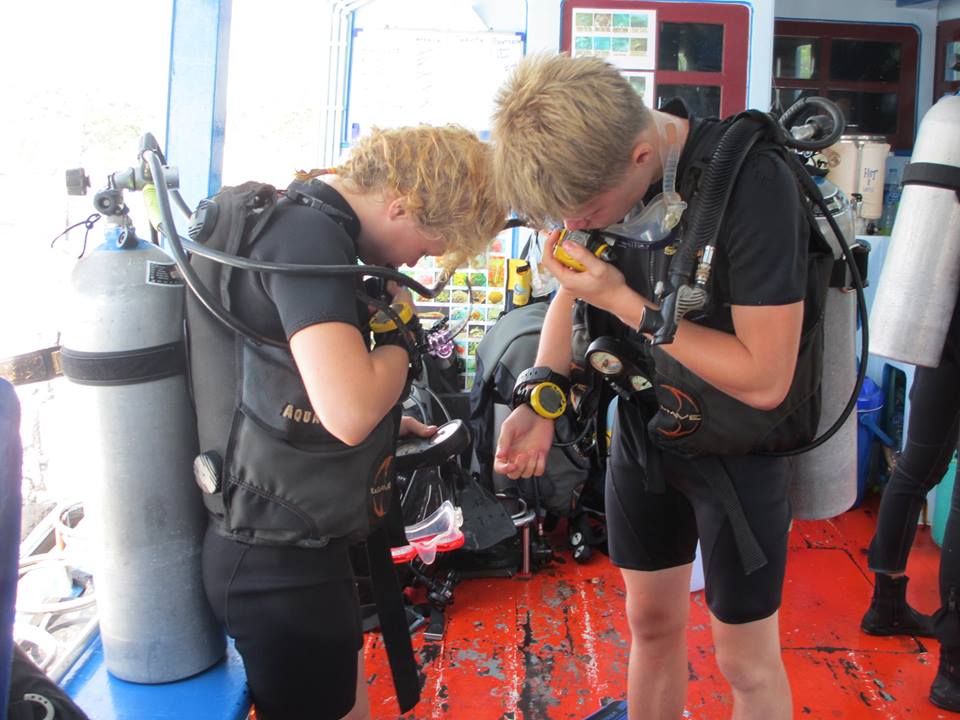A look at the future is always fun, especially when we talk about technology innovations. As technology evolves, our diving gear is also getting even more advance. Remember the days when we didn’t have underwater camera? Or the time when diving helmet is used? We have traveled in time so fast that now we have advanced thermal protection, waterproof digital cameras, and many other inventions. Let’s take a look at the future of our diving gears to see what’s next before anyone else.
Aqwary, a Swedish manufacturer announced a Smart Consoled development. Through ultrasonic, subaquatic networks, this tool let diver shares location or air supply status. The final result is a 3.7 inch OLED display with a divers’ air supply status, as small as the palm of your hand. The best part of it is that it can transfer information within a 100m range on the name, position, depth, temperature and air supply status of the diver to up to 70 other divers even to a boat on the surface.
Another big invention is a new material ability to absorb oxygen from water. A spoonful of this crystalline material will be able to absorb oxygen out of room or body of water. This invention according to Professor Christine McKenzie of the University of Southern Denmark will be valuable for people with lung problems who carry heavy oxygen cylinders, as well as divers who may need the oxygen underwater.
Finally, a Product Design major at Staffordshire University called Thomas Winship came up with the idea of ORB rebreather helmet. This helmet is a closed circuit rebreather that covers a head of a diver. With a Bluetooth technology, this helmet allow divers to communicate to each other. Don’t worry about your ears being pressured, because this helmet is pressure resistant. Although so, Thomas believes that his helmet will only be able to be used in shallow depths.
So what do you think? Will you consider buying these products when they are launched? Or do you think you are going to wait for a more advanced and realistic product? Make sure that you are diving cautiously even with such an advance technology. If you want to learn more about diving, make sure you go check out our page here.



